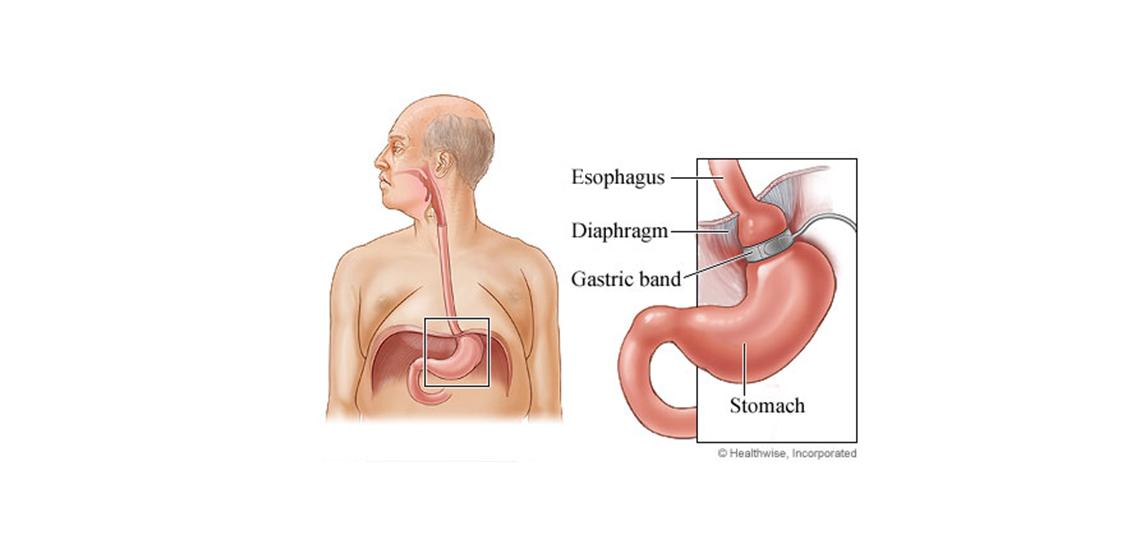Laparoscopic adjustable gastric banding involves placing a medical device around the top of the stomach. It is done to help people lose weight by controlling how much food enters the stomach.
Adjustable gastric banding is done laparoscopically, which means it is done through several small incisions in the belly. The surgeon will place small surgical tools and a camera through the incisions. The surgeon then paces the device around the upper part of the stomach to form a ring. Attached to the ring is a thin tube leading to an access port that is left under the skin. The access port is the place where the doctor puts in a needle to add or take away saline. Adding saline tightens the band and makes the stomach smaller. The doctor can take away saline if the ring is too tight.
Another name for this surgery is gastric banding. Sometimes people refer to it by brand names, for example, the Lap-Band System.
What are the risks of adjustable gastric banding surgery?
Risks common to all surgeries for weight loss include an infection in the incision, bleeding, and a blood clot in the legs (deep vein thrombosis, or DVT) or lung (pulmonary embolism). Some people develop gallstones or a nutritional deficiency condition such as anemia or osteoporosis.
Although adjustable gastric banding is considered the least invasive of the weight-loss surgeries, problems can occur. They include:
- Obstruction: The band can cause food to block the opening from the upper part of the stomach to the lower part of the stomach. This can cause pain, nausea, and vomiting.
- Band slippage: The band can slip down on the stomach. Symptoms might include belly pain or heartburn (acid reflux). This may be treated by removing the fluid from the band. Or you may need a second operation.
- Access port problems. You could get an infection around the access port, or the access port could disconnect or leak. The tube that leads from the band to the access port could also become blocked.
- GERD: You could develop esophagitis or gastroesophageal reflux disease (GERD).
- Esophageal dilation: If the band is too tight, or if you eat too much, your esophagus could expand. This can make it hard for you to swallow, which could cause food to get stuck in your throat. If it is not fixed, you could get pneumonia from aspirating food.
- Poor nutrition: Eating less may mean that you are not getting enough nutrients, which can cause health problems. You will probably have to take vitamin supplements for the rest of your life.








 Credit
Credit
